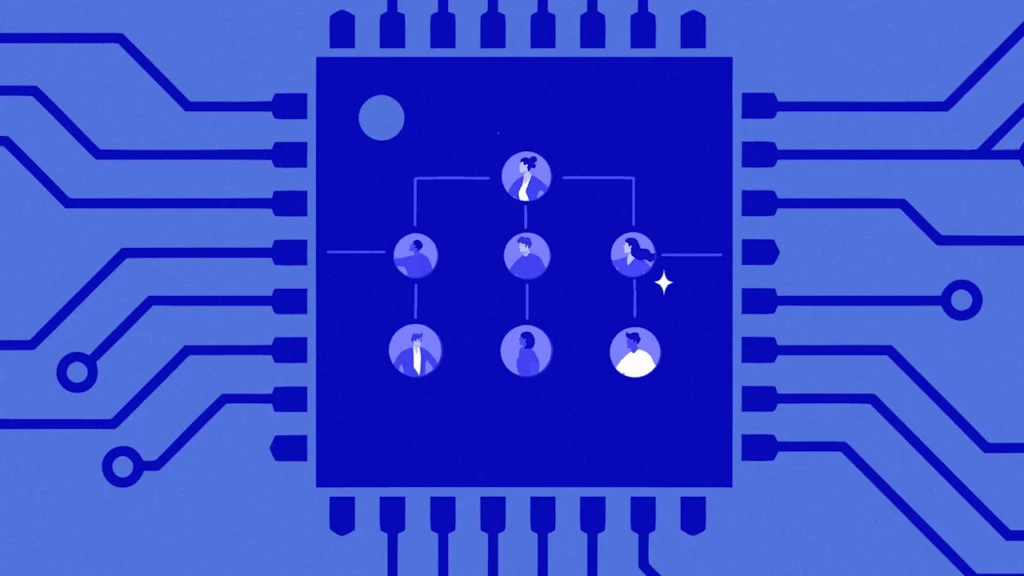
Some companies see leadership and managerial training as an investment. Others, however, provide very few resources for the transition from individual contributor to leaders.
For most of the latter companies, managerial training is a one-off event. Take a seminar or two, and off you go. Sometimes you get a company that offers executive coaching or mentorship to their C-suites. But for many first-time (and even some middle) managers, they’re often left to fend for themselves.
This is the problem that leadership coaching startups are trying to solve. The answer, they believe? AI.
While founders of these startups acknowledge the limitations, many are adamant that AI can help break the barriers, democratizing a perk that companies often reserve for the very few at the top.
In this paid Premium story, you’ll:
- Learn how AI and human coaching differ in function, and how they can complement each other.
- Understand how AI can help solve the gaps that are common in today’s leadership development.
- Identify AI’s limitations as a coach and trainer.
Most organizations don’t provide managerial training
Ian Gover is a trained industrial psychologist with over 25 years of experience in human resources. Initially, he was resistant to the idea of AI having any part in coaching and mentoring.
That is, until he started to dig deeper into the data—and realized he was part of a group that he calls “the fortunate few.”
“I got amazing training from the companies I worked for,” he tells Fast Company, starting from a “30-day, high-immersive sort of leadership programming” to having access to coaches and mentors when the company promoted him.
He soon learned, however, that those experiences were rare and far between. He quotes a Gartner study that found 85% of new managers receive no formal training.
That’s when a switch flipped in Gover’s brain.
He realized that he was asking the wrong question: It’s not whether AI can replace humans for this type of learning. It’s about how AI can potentially help the majority of managers, who receive very little initial and ongoing support from organizations.
Eventually, that led to Gover cofounding Rypple, a platform that aims to help managers by providing them with an AI-driven “leadership team.” This includes a range of AI assistants that can help managers with tasks like meeting preparation and follow-ups, and point managers to relevant resources that tackle a topic they might be struggling with. There is also a role-play component, where managers can rehearse difficult conversations with an AI assistant and receive feedback on what went well and what they could have done better. All of these interactions build a context-specific and personalized leadership profile, and can analyze patterns and suggest opportunities for growth.
Viewing human and AI coaching as two different tools
Like Gover, Leon Wever experienced first-hand benefit of one-on-one coaching during his stint as a corporate lawyer. Wever was eager to bring coaching into more working environments, which led him to cofound Coachello. Unlike most AI-coaching startups, Coachello actually provides a hybrid model that incorporates human and AI coaching. Their customers can access coaches that are credentialed through the International Coaching Federation and have access to AI tools. These tools help with role-plays, training sessions, and dashboards that track behavior change progress, competencies, and skill gaps.
Wever believes that human and AI coaching are two distinct tool that provide different benefits.
“Technically, AI cannot resonate from experience, and it cannot care for another human being,” he says. What AI can do, he explains, is provide an assessment or a reflection tool, and enrich the human coaching experience. For example, AI can live record your human coaching session. The next time you do something to apply your learning from the coaching session, it can record and suggest feedback.
Say you’re working on having a difficult conversation with a direct report for the first time. After your human coaching session, you might role-play a potential scenario with an avatar. AI can analyze your performance based on the takeaways and feedback that you receive from your human coach. Your human coach will then have access to that information the next time you meet. In this instance, Wever explains, AI can actually enrich human coaching by making it more accurate.
The opportunity to provide on-demand, 24/7 support
For James Cross, cofounder of Tenor, going into the AI-leadership space was about solving the lack of time and scalability problem that many companies face when it came to leadership development coaching.
When it comes to interpersonal skills that managers need to possess, the former Workday VP explains: “We know that humans need to practice and retain those skills . . . That’s what AI is really good at.”
However, there’s only a limited number of qualified coaches in the world, and many are unable to provide 24/7 support.
Cross believes that COVID expanded the meaning of what it means to be a manager. “They’re being expected to do more with less headcount,” he says, and middle managers and frontline managers are bearing the brunt of it. But with AI, he explains, a manager can tap into an on-demand support, “almost like a really good HR business partner and executive coach who knows the business, [and] knows you and your team.”
He believes this to be especially beneficial for frontline managers in industries like manufacturing and distribution. “I think tech company managers are fairly well supported,” he observes. In most instances, “you’re only ever a Slack message away from your HR team. But if you’re a manager at a large grocery store chain, you’re having to deal with these dynamic situations in the moment. You don’t have direct HR support.”
Cross says many of these managers are working in a fast-paced environment while dealing with issues like lateness, hygiene, and personal problems. They can turn to AI coaches for suggestions on what they might want to do at that specific moment. For example, say an employee has been late several times in a row, managers can ask AI for suggestions on how they might want to approach this conversation in a sensitive way.
The more they do that, the more AI picks up on patterns and insights that the managers might not be aware of.
Cross finds that once they get over the hurdle of the idea of talking to an AI, “managers are often more receptive to AI feedback” than they would be to feedback from a human manager. That’s because “there’s no emotion attached to it,” he explains, and they see it as something that’s logical and contextual to them.
Acknowledging AI’s limitations
All three cofounders acknowledge that while AI has its strengths, it also has its limitations.
Tenor, for example, has specific guardrails in place. The moment a manager starts to ask AI for advice on certain topics, it directs them to speak to an actual human. What AI determines as off-limits will be different for every customer—Cross believes that managers should discuss termination, health concerns, or specific personal problems with another human in the company.
Dr. Marais Bester, a Netherlands-based occupational psychologist for software firm SHL, said that it would be a risk for a company to rely on AI as a “one-stop-shop for all learning and leadership growth.”
After all, “human beings are weird, unique, wonderful and unpredictable,” he says. In his opinion, a hybrid model is ideal. This might look like a human coach building a development plan, and using AI to supplement where necessary.
For example, say the human coach doesn’t have the time to analyze every single person’s psychometric testing results. The person that is being coached might use AI to do that, inputting only the information that they’re comfortable with.
Kseniia Aksenova, a customer service manager at The Pokémon Company International, observed one downsides of using AI coaching. She found that it didn’t provide any surprising or unique insights.
“It just gave me something that I was thinking of already,” she says. “It didn’t give me much of a new perspective that I was trying to get.” At the time Aksenova was using an AI coach, she was going through some personal and professional issues that she wanted to work through. The solutions that she received from the AI coach were ones she already thought of. It was up to her to do a lot of the critical thinking herself. Only then was she able to work with the AI coach and obtain the new insights that she was looking for.
AI as a tool to democratize learning
Gover is hopeful that in the future, AI can be a tool to democratize learning and coaching. For his team at Rypple, “the thing that excites us every single morning is really that idea of what happens if we are able to level that field.”
It’s not about making every manager “the world’s best expert in every single leadership topic, he explains. “But what if we are able to actually improve the capability and capacity of a material part of that community of managers that are struggling out there right now? What does it mean if we can provide leadership and management opportunities to those who have historically been left out of those discussions and conversations?” Gover ponders.
The main message, he insists, shouldn’t be about AI replacing human coaches. “It’s about increasing access to all of these leadership trade secrets that only the few and fortunate have had the privilege to access,” he explains.
“Now’s the time to open it up and make it available.”
